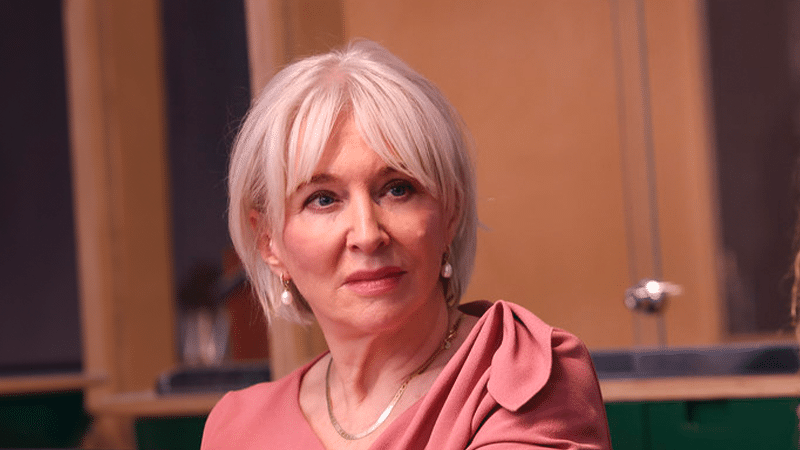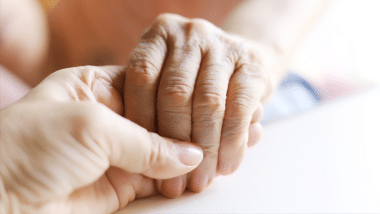Doctors should never be asked to kill their patients, former Cabinet Minister Nadine Dorries has said.
Reflecting on the peaceful death of her terminally ill husband at home, supported by palliative care and “surrounded by his loving family”, Dorries urged Parliament not “to vote to make the ending of human life legal”.
Her article in the Daily Mail was part of the backlash to Dame Esther Rantzen’s call for a change in the law to remove end-of-life protections. The former TV presenter has said she will travel to Switzerland to end her life at the Dignitas clinic if her cancer treatment is unsuccessful.
Despair
When her husband Paul was diagnosed with bowel cancer and given only months to live, Dorries recalls how he despaired: “‘I can’t do this. I can’t do it to the girls, or to you. I saw how my dad died with bowel cancer and what my mum went through.’”
“Then”, she said, “he added the words that shocked me to the core: ‘I want to go to Dignitas. Now, while I still can.’”
But Paul did not go to the Swiss death clinic and Dorries revealed: “the peaceful way he died at home four months later — surrounded by his loving family — only reinforced my strong view that assisted dying is wrong.”
Parliament should not allow any government to shirk its responsibility by legalising a cheap shortcut to the end of life
Palliative care
Outlining the reasons for her opposition to a change in the law, Dorries argued: “The truth is that there is no need for anyone to have a bad death or to die in pain today.”
“Medication is sophisticated and palliative care services are down to the Government, the NHS and the local care commissioning boards which manage palliative care funding.
“Responsibility for providing access to palliative care and pain relief lies with the state, and Parliament should not allow any government to shirk its responsibility by legalising a cheap shortcut to the end of life.”
Dangers
Dorries continued: “By contrast, the end of life medication administered at Dignitas, a drug taken in 60ml of water and swallowed, does not, to my mind, result in a peaceful end.
“It is sudden, brutal, clinical and, I imagine, distressing for those who have to watch. And it surely leaves loved ones with an end-of-life memory many would rather not have.
She warned that if end-of -life protections were removed, “Those who feel they are a burden on their loved ones could feel pressured to avail themselves of euthanasia when they fall ill.
“And would you trust those managing NHS budgets not to apply pressure to someone who is costing the state and depleting NHS budgets due to their poor health, despite the fact that they may be enjoying every day of their life?”
‘Died in our arms’
Despite her husband’s fears, Dorries believes his death was “a good one” and that his final days brought joy both to him and the family.
“In our last moments, when he was awake, I sat on his bed and sang to him — Joni Mitchell’s Both Sides Now. He had watched her sing it at the Isle of Wight pop festival and it was a magical memory he had relived with us.”Parliament should not allow any government to shirk its responsibility by legalising a cheap shortcut to the end of life
“His last words to me were that the past few months had been the best of his life, and he didn’t want to leave us. He said he only wished we had longer, that he loved me. Then he closed his eyes and slept for three peaceful days before he left us for good.”
She concludes: “He didn’t die in a clinical setting in Switzerland, but at home in our arms. And at the end, that was exactly where he wanted to be.”
‘Unlike Dame Esther, I’m thankful assisted suicide is not legal in the UK’
Majority of UK doctors would not facilitate assisted suicide
Challenging assisted suicide: ‘We must care for those who are suffering, not end their lives’
‘Don’t turn doctors into death givers’, Oireachtas committee warned


